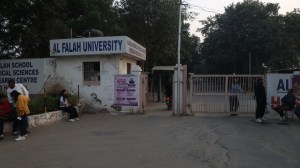Sparing the rod
WHEN noted Assamese writer and filmmaker Bhabendra Nath Saikia died last month he left much more than just stories and films. He left behind...

WHEN noted Assamese writer and filmmaker Bhabendra Nath Saikia died last month he left much more than just stories and films. He left behind Aarohan8212;an institution for Assam8217;s children.
As in death so in life Saikia loved children. Five years ago when doctors diagnosed him with cancer Saikia prioritised his work. 8216;8216;I had a novel, a film and a project for children. But now, since time is short, I must begin with the children8217;s project and keep the other two at abeyance,8217;8217; he wrote in Jivan Britta which he completed a yearafter his diagnosis. It has been acknowledged as one of the best autobiographies of an Assamese writer in recent times.
|
Child8217;s burden
|
||||||
|
Unlike many, Saikia did not believe that children should be seen not heard. 8216;8216;They must not only be obedient but also naughty.8217;8217; Saikia, who was also the editor of Sofura, the highest circulated children8217;s magazine, had earlier announced setting some of his awards money aside for projects for children.
His list of awards is long: eight Rajat Kamals for feature films, one Sahitya Akademi award, Rs 1 lakh from the Assam Valley Literary Award instituted by the Magor Educational Trust and another Rs 1 lakh from the Sankaradeva Award instituted by the Assam government.
About 50 per cent of the work on the institute is complete. The four storey building stands on the land Saikia had earlier donated for his dream project8212;Aarohan. It8217;s received Rs 13 lakh from the state8217;s MPs. Another Rs 10 lakh has come as public donation, mostly from Saikia8217;s readers. For the project, the state government has also set up a monitoring committee with chief secretary J P Rajkhowa as chairman.
As vice-chairman of Srimanta Sankaradeva Kalakshetra, a sprawling cultural complex set up in Guwahati under the provisions of the Assam Accord, Saikia had contributed tremendously in giving new life to Moina Parijat, a movement that trained children in leadership qualities. He received UNICEF support in his efforts to revive the Moina Parijat movement.
8216;8216;All-round development of children is what is lacking. Homework, a heavy schoolbag, and lack of open space are already crippling children, especially in Assam which has passed through a difficult phase owing to insurgency and violence,8217;8217; he had recently said.
Saikia wanted Aarohan to facilitate on line chats between Assam8217;s children in different parts of the world which would give them more exposure.
Saikia8217;s efforts to improve the conditions of Assamese children was a much-needed move. Over 3000 children have been directly affected by insurgency over the past 15 years. The state also has a large number of children who don8217;t go to school. The Sarva Siskha Mission puts the number at 14 lakh. The rate of immunisation in Assam is also below the national average of 80 to 90 per cent. Assam8217;s infant mortality rate is 72 per 1000 births8212;higher than the national average of 68 per 1000 births.
8216;8216;Working with UNICEF in the Moina Parijat project, Saikia always considered it alarming that there was a massive violation of child rights in the state. In fact, when we organised Moina Parijat workshops during the past four years, Saikia always insisted we emphasise on the rights aspect of the children,8217;8217; says Goutom Sharma, secretary of the Srimanta Sankaradeva Kalakshetra, who is also a member of the Trust set up two years ago.
- 01
- 02
- 03
- 04
- 05






























